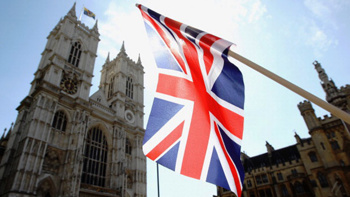Two billion dollars was poured into mental health by the previous administration, and it just proves that chucking money at a problem doesn't solve it. The Mental Health Foundation at the time was sceptical that the huge boost in funding would be spent in the right areas. Education about maintaining and boosting mental health and well-being, they said, should be just as important as the services needed when people are in crisis. But the government was more about funding the ambulance at the bottom of the cliff.
So what was the result of that huge investment in mental health? Nearly half a decade later what do we have for that money? Well, as many of you know, it's now harder than ever to see a counsellor or a psychologist, even privately, even if you've got the money to see them privately, you'll be waiting. Workforce shortages continue to cripple existing services and impede the rollout of new ones. When it comes to hospital beds, well, acutely unwell mental health patients will still find themselves in a makeshift bed in a staff room, or on a hospital ward not fit for purpose. Resources are so stretched that children harming or starving themselves are typically only admitted if they've tried to take their own life. It's been like that for some time. In several regions, young people in crisis are having to wait twice as long as they did five years ago to see a specialist mental health service. And that's with $2 billion poured into the sector.
Meanwhile, research shows the mental health and well-being of New Zealanders has been in decline over the last decade, while the number of adults unable to get help for their mental distress or substance abuse has risen. Mental Health Minister Matt Doocey is hoping to turn that around, (and good luck to him) with five mental health and addiction targets announced yesterday with some funding. And promising that there would be a big focus on prevention and early intervention and that's a focus mental health campaigner Sir John Kirwan supports.
“Look, there's three things that are really, really important for me. You cannot centralise mental health, so it needs to be a community issue. I travel the country, there's some amazing people in the community that are doing great mental health work so we need to finance them. The second thing is we've got to start talking about preventative mental health, how do we stop pushing people off the cliff? And you know, I think what this government has said, if we give 10 million this year and these people come back to us and say this is working in the community, you know, we've got this program that's working. Here's the proof. They're going to extend on that money. So community is where it's at. And if you're out there and you've got these programs in place where you know you're making a difference in mental health, then I would say apply for it. Innovation is the word we need. You know, this is a worldwide problem here, as you know. I mean there there's 800,000 people committed suicide last year, so this is a crisis around the world and our beautiful little country is way up there in the bad stats. So what we've been doing and I don't think this is anyone's fault, what we've been doing is not working so we need to try and attack this differently. So innovation, giving money to the community, then proving back that it works and then giving them more money is definitely what I think we should be doing.”
That was Sir John Kirwan talking to Heather du Plessis Allan last night. So I'd love to hear from those of you who have been trying to get help for a loved one, trying to get help for yourself. What's the wait time? What are the treatments offered to you if you do finally get to see someone. And for those who are initiating community responses, for those who are trying to help out on a local level, I would love to hear from you as well. What are you doing that's different? How are you helping? You know we tried with the gangs to see if it worked putting money with gang members, because they can reach the hard to reach people. I think at best you would say the results were indeterminate from Harry Tam’s programme. But I would very much like to hear from those who have been trying to access support or help for someone they love or for themselves. And I'd love to hear from any initiatives that actually work, they might be little, they might be small, they might be bespoke, but they might be working.
Take your Radio, Podcasts and Music with you










